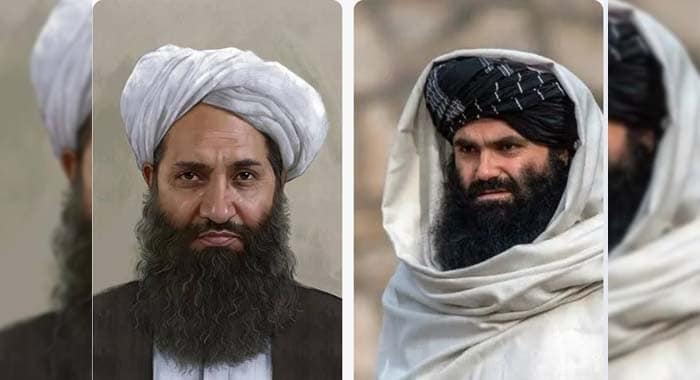Deepening cracks within the Afghan Taliban’s top leadership have come to light as tensions between the group’s Supreme Leader, Mullah Hibatullah Akhundzada, and the powerful head of the Haqqani Network, Sirajuddin Haqqani, erupt into a public confrontation.
According to multiple Afghan sources, the struggle for control between the Kandahar-based clerical leadership and the operational wing led by Haqqani has escalated over the past several days, culminating in an open snub by the Supreme Leader and a major reshuffle within the Ministry of Interior.
Snub in Kandahar
The power tussle became evident when Sirajuddin Haqqani, who also serves as Afghanistan’s Interior Minister, travelled to Kandahar in a bid to meet with Mullah Hibatullah Akhundzada. The meeting, however, never took place. Sources confirm that the Supreme Leader refused to meet Haqqani, signaling a serious deterioration in ties between the two most influential figures within the Taliban movement.
Haqqani Ally Removed
In a further blow to Haqqani’s camp, his deputy at the Interior Ministry, Abdullah Mukhtar, has been removed from office. The Ministry of Interior confirmed the development, stating that Mohammad Wazir has been appointed as the new Deputy Interior Minister on the orders of Supreme Leader Hibatullah.
Although the swearing-in ceremony of the new deputy was attended by several officials, Sirajuddin Haqqani was conspicuously absent, underscoring the growing divide.
Prominent Afghan journalist Sami Yousafzai revealed that the recent changes are part of a broader move to sideline Haqqani within the power hierarchy of the Islamic Emirate. According to Yousafzai, Haqqani has not only lost his trusted deputy but has also been stripped of significant powers within the Ministry of Interior.
He further noted that Haqqani’s influence has steadily declined since the killing of his close relative and senior commander, Khalil Haqqani. “Haqqani’s position has been weakened considerably, and he is no longer in a position to counter decisions coming directly from Kandahar,” Yousafzai said.
Implications for Taliban Unity
The confrontation is a stark reflection of the Taliban’s internal fault lines, particularly between the religious Kandahari leadership and the militarily powerful Haqqani Network, which has historically maintained closer ties with foreign intelligence services, especially Pakistan’s ISI.
These internal disputes could have serious implications for the Taliban’s cohesion, governance, and approach to regional diplomacy — especially at a time when Afghanistan faces growing international isolation and internal dissent.
Observers fear that if unresolved, the power struggle could evolve into institutional paralysis or even armed confrontation between rival Taliban factions, reminiscent of Afghanistan’s brutal history of civil infighting.





